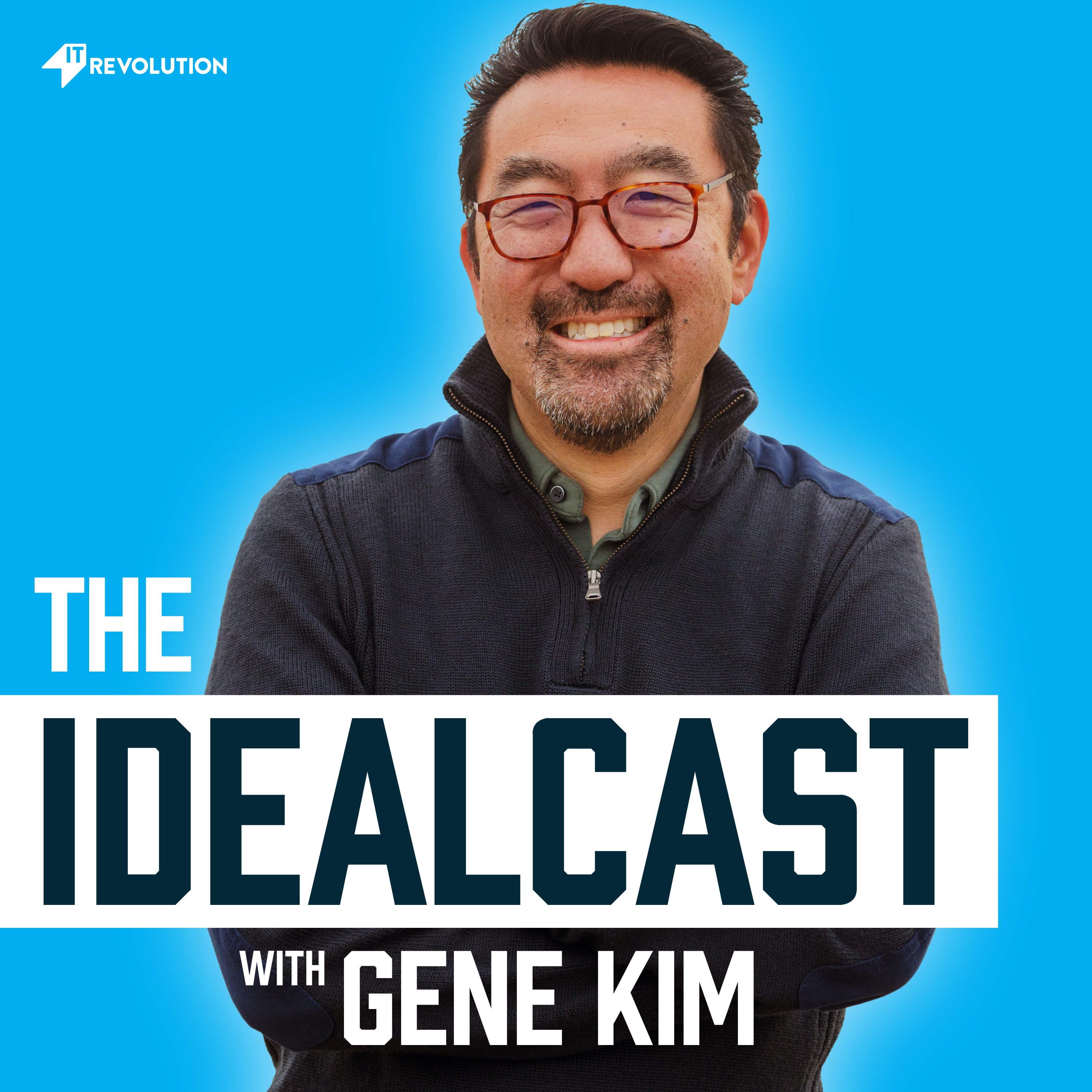The Pursuit of Perfection: Dominant Architectures, Structure, and Dynamics: A Conversation With Dr. Steve Spear
Description
ON THIS EPISODEIn this episode of The Idealcast with Gene Kim, Dr. Steve Spear talks about the primary characteristics of dynamic learning organizations, through the lens of its structure and the resulting dynamics, and how it enables those organizations to win and dominate in the marketplace. From his 1999 Harvard Business Review article “Decoding the DNA of the Toyota Production System” to his bestselling book The High-Velocity Edge to his monomaniacal advocate for the scientific method employed by everybody about everything all the time, Spear’s influence on the successful pursuit of excellence and perfection is undeniable. Discussing everything from the importance of curiosity and experimentation, fast feedback, mission orientation, leadership, healthcare organizations, military strategy and organization, and of course Toyota, Spear and Kim explain why organizations behave the way they do and demonstrate why dynamic learning organizations are so successful.ABOUT THE GUESTSDr. Steve Spear (DBA MS MS) is principal for HVE LLC, the award-winning author of The High Velocity Edge, and patent holder for the See to Solve Real Time Alert System. A Senior Lecturer at MIT’s Sloan School and a Senior Fellow at the Institute, Spear’s work focuses on accelerating learning dynamics within organizations so they know better faster what to do and how to do it. This has been informed and tested in practice in multiple “verticals” including heavy industry, high tech design, biopharm R&D, healthcare delivery and other social services, Army rapid equipping, and Navy readiness. High velocity learning concepts became the basis of the Alcoa Business System—which led to 100s of millions in recurring savings, the Pittsburgh Regional Healthcare Initiatives “Perfecting Patient Care System”—credited with sharp reductions in complications like MRSA and CLABs, Pratt & Whitney’s “Engineering Standard Work”—which when piloted led to winning the engine contract for the Joint Strike Fighter, the operating system for Detroit Edison, and the Navy’s high velocity learning line of effort—an initiative led by the Chief of Naval Operations. A pilot with a pharma company cut the time for the ‘hit to lead’ phase in early stage drug discovery from twelve months to six.Spear has published in Annals of Internal Medicine, Academic Medicine, Health Services Research, Harvard Business Review, Academic Administrator, and the US Naval Institute’s Proceedings He invented the patented See to Solve Real Time Alert System and is principal investigator for new research on making critical decisions when faced with hostile data. He’s supervised more than 40 theses and dissertations. He holds degrees from Harvard, MIT, and Princeton and worked at the University of Tokyo, the US Congress Office of Technology Assessment and Prudential Bache.LinkedIn: linkedin.com/in/stevespearEmail: [email protected]: thehighvelocityedge.comYou’ll Learn About:Explore how Steve’s mental model of dominate architectures, structure and dynamics can explain why organizations behave the way they doThe conditions for organizational-wide learning that allows the achievement of amazing goals and to dominate in the marketplaceHow fast feedback creates opportunities to self correct and improve in real timeThe characteristics of a dynamic learning organizationEpisode Timeline:[00:08] Intro[00:21] Meet Dr. Steve Spear[04:47] Introducing the late-Dr. Clay Christensen[05:50] Working at a Tier 1 Toyota supplier’s plant floor[09:56] Steve’s dissertation and Dr. Clay Christensen[15:00] Dr. Clay Christensen’s involvement with Steve’s work[19:19] Creating a feedback generating experiment beyond Toyota[30:07] Why dominant architectures are important[33:22] The steering column example[36:28] What happens when the problems change?[41:45] The role struct
More Episodes
In part two of this two-part episode on The DevOpsHandbook, Second Edition, Gene Kim speaks with coauthors Dr. Nicole Forsgren and Jez Humble about the past and current state of DevOps. Forsgren and Humble share with Kim their DevOps aha moments and what has been the most interesting thing...
Published 01/27/22
Published 01/27/22
In part one of this two-part episode on The DevOpsHandbook, Second Edition, Gene Kim speaks with coauthors Patrick Debois and John Willis about the past, present, and future of DevOps. By sharing their personal stories and experiences, Kim, Debois, and Willis discuss the scenius that inspired the...
Published 12/16/21


